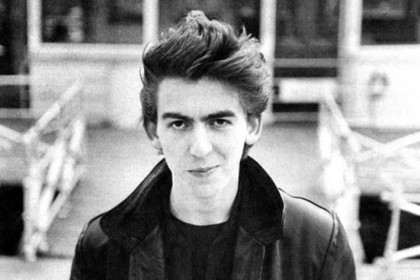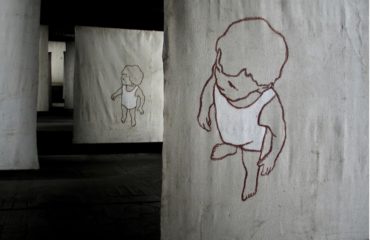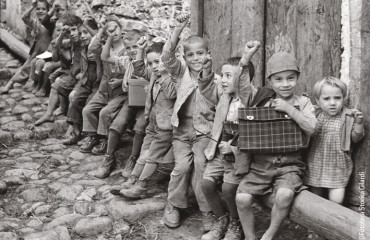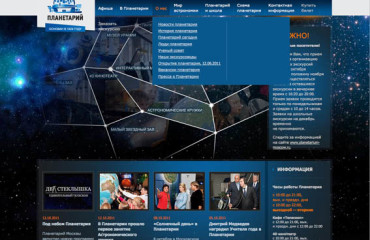
When talking about something concerning the Beatles one does not speak only about music history or costume, but history tout court. This is a fact: to paraphrase John Lennon, we can say that the Beatles were and still are, forty-two years after their breakup, more famous (and certainly more well-loved) than Queen Elizabeth II. They influenced our way of life, more than their gracious sovereign.
We would therefore like to remember George Harrison, on the occasion of the tenth year anniversary of his death. We thus give a dutiful and far from cumbersome homage to Harrison who died of cancer, having lived inconspicuously for 58 years. Yes, inconspicuously and with a quick and steady step, just as in the cover of Abbey Road, but softer. Wary of the enormous popularity which he had to face continually with his shyness and his famous crooked smile.
Unlike the iconoclast John, George was convinced that to improve the world we need to better ourselves first. According to George, we must learn to love the world, before expecting the governments and politicians to steer us along the path. Paul also spoke of love, but one without “overlooking”, stopping at the hedge his own garden or at most the neighbour’s one. George’s concept instead was a cosmic explosion, an acceptance that flourished in the interest of other cultures (it is not by chance that Ravi Shankar called him the true godfather of world music) and reached the peak with the first charity rock in history the fabulous Concert For Bangladesh that was the model for all later events like Live Aid that came afterwards.
Let us dwell a moment on this episode, symptomatic of Harrison’s personality. It is sufficient to list the names of the participants to understand the level of esteem enjoyed by former Beatle, not just as an artist but also as a person: Ravi Shankar, Eric Clapton and the Dominos, Badfinger, Billy Preston, Leon Russell, former band mate Ringo Starr, Jim Keltner, Jesse Ed Davis, Bob Dylan. Unfortunately, the charity concert also revealed the downside of the essence of our idealist. In fact, Harrison was unable to effectively manage the financial part of the event and most of the money did not go where it was intended to.
Another problem of the genre was when George was sued for plagiarism of My Sweet Lord, actually very similar to the previous He’s So Fine by The Chiffons. Although the Court had recognized that the plagiarism was unintentional, his manager Allen Klein tried to double cross him and relying on the good faith of the naïve George, nearly managed to steal a large amount of money from him.
George was a pure artist and a mystical dreamer, with his hands playing the guitar or the sitar and his head in the clouds. Had no time or desire for certain financial foul play. The same goes for his many film productions. There was no British independent film festival that did not have a film produced by HandMade Films, his production company. Despite some success, due mainly to the creativity of Monty Python (from Bonzo Dog Doo Dah Band to Monty Python, the step was short), at one point he was forced to sell due to financial problems.
Even sales of Harrison’s solo albums had ups and downs. Let’s say right away that apart from being the first Beatle to release a solo album, the Wonderwall Music soundtrack, he was also the one who published the most beautiful piece, the triple album All Things Must Pass. But then there were also the not so brilliant pieces, similarly to the other three former band mates, but his need for independence from the “material world” made him become the only one with his own label, the Dark Horse. And concerning independence from the material world”, he went to India to visit Maharishi in 1967 and in 1968, together with his band mates and Mick Jagger, Marianne Faithfull, Donovan and Mia Farrow. But for others it was only a fashion and that is the way they experienced it. Not George. In fact, he continued to practice meditation throughout his life in an interior search for universal love, as well as dedicating himself to Indian music.
Harrison’s first two discs were the least he could do to meet the tastes of the general public. In fact, this is the reason why the second album – Electronic Sounds, was released by Zapple, Apple’s experimental music subsidiary. The career of the inconspicuous and ethereal George Harrison was one of the most extraordinary careers known. At the age of just twenty-seven, when the Beatles broke up, he had already become a myth and despite the strong character of the two squabbling leaders – Lennon and McCartney, he had found the opportunity to make his compositions known, such as Something and Here Comes The Sun, to name just a couple of the most beautiful in the entire Beatles catalogue.
Now his ashes flow in the Ganges, as was his desire.
www.fermoeditore.it
 English
English  Italiano
Italiano 



